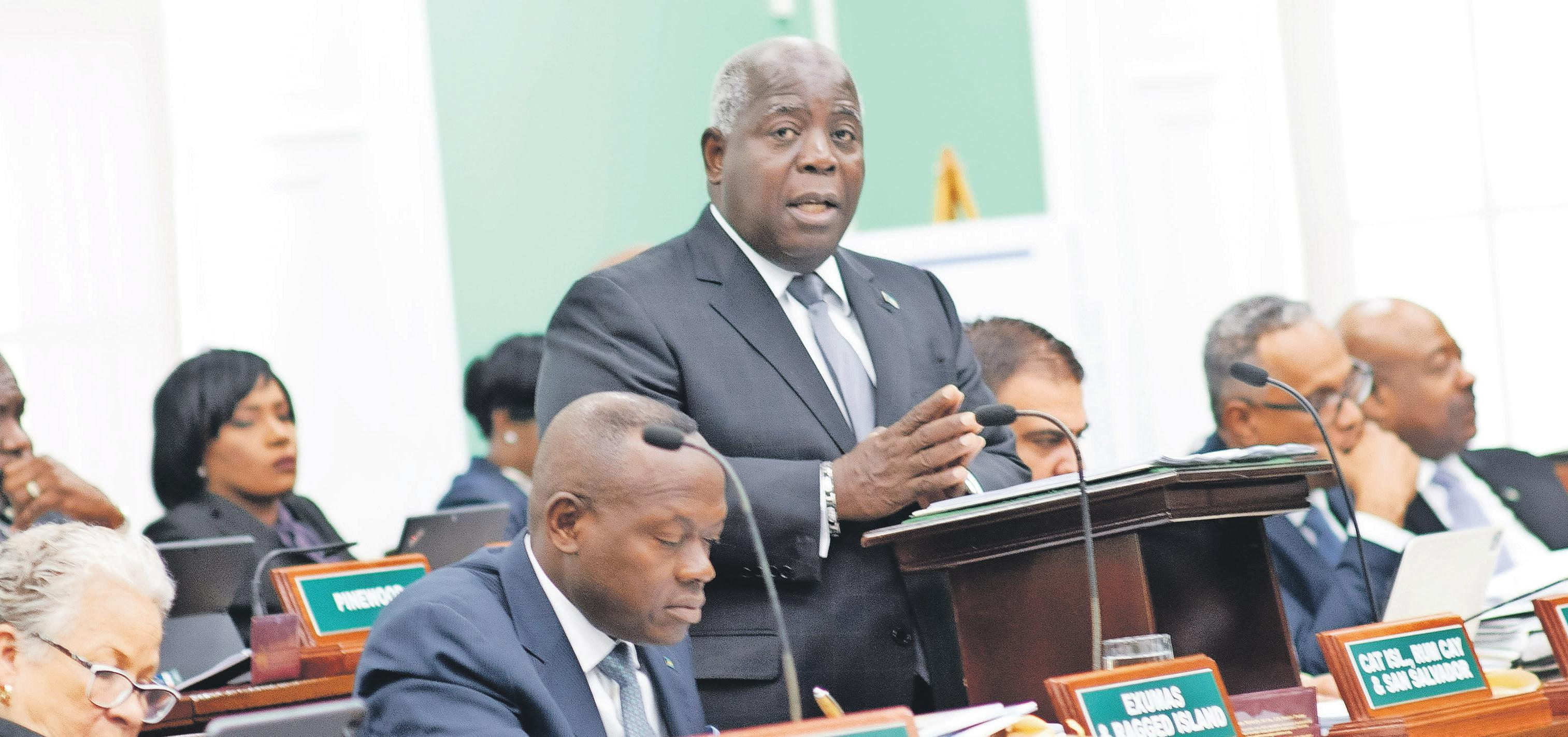
3 minute read
PM: Revenue is up... by over $100m
percent of revenue was collected during the first six months.”
He said the policy shift was just one of his administration’s prudent strategies to restore the country’s fiscal health and said by improving revenue collection earlier in the fiscal year, we “improve the cash flow.” This also reduces the need for short-term borrowings, he added.
Advertisement
Prime Minister Davis also gave a further breakdown of revenue receipts, which showed improvements in tax revenue collections as well as in other areas.
“Tax revenue collections improved by $123.8m and stood at $1.1bn for the first six months of the fiscal year. This represents 44.0 percent of the budget target,” he added.
He also noted that VAT, which accounts for 54.8 percent of tax revenues, totaled $600.2m and grew by $23.7m when compared to the same period the previous year.
He added that departure tax collections and stamp tax collections also saw improvements.
“Value added tax, which accounts for 54.8 percent of tax revenues, totaled $600.2m and grew by $23.7m, relative to the same period in the previous year. This equates to 42.5 percent of the annual budget target.
“With the sustained improvement in the tourism sector, departure tax collections totaled
$71.5m and improved by $45.0m relative to the previous year. At the halfyear mark, departure tax accounts for 73.7 percent of the budget target.”
As for total expenditure, he estimated it at $1.5bn for the first six months of the year, which represents an increase of $119.3m over the previous year. He added: “As for recurrent expenditure, preliminary estimates indicate an increase of $105.3m to $1.4bn, with key spending components, including an increase in compensation of employees by $42.2m, to $399.4m, and representing 47.2 percent of the
‘ERA OF FISCAL MISMANAGEMENT’
from page one
I am happy to report that our plans and strategies are working, and that the era of fiscal mismanagement has come to an end.
“I am pleased to report that at the halfway point in the fiscal year, the government’s unpaid bills total a mere $90.7m or 2.7 percent of budgeted expenditure, compared to the 31.3 percent reported in the previous year.”

These include $44.3m in unpaid bills and other obligations for state owned enterprises.
He added: “Of which, $30.7m in unpaid bills were to the Water and Sewerage Corporation for water purchased; $13.8m in unpaid bills to the Ministry of Tourism, Investment, and Aviation, mainly for consultancy services, quality assurance, and global communications.”
Other debts include $9.9m in unpaid bills for catastrophic healthcare services and the upkeep of community clinics under the Ministry of Health and Wellness and $8m in bills to the Department of Transformation and Digitisation in respect of various unfunded contractual obligations.
The government also owes $5.9m to the Ministry of National Security for various security enhancement projects and $5.5m to Bahamas Agricultural and Industrial Corporation mainly for insurance services and utility services.
With respect to the government’s performance thus far, Mr Davis’ officials were content, but not “complacent” with its achievement for the first six months of the fiscal year.
He reminded that since coming into office, his administration reduced customs duties on various food items, increased the national minimum wage, and finalised a number of industrial agreements, among other things.
Prime Minister Davis said that some of its initiatives to help Bahamians struggling from inflation, such as its price control expansion, received heavy pushback and “unwarranted criticism.”
However, he said, the government has a role to play to protect consumers from market abuse, insisting that it will not hide from its responsibilities.
“We acknowledge that in a perfect market, price controls are unnecessary. But The Bahamas is not a perfect market. Many of those who shout loudly about the virtues of the free market themselves participate in monopolies, duopolies, oligopolies, and other noncompetitive practices.
“In all areas, the government has a critical role to play in protecting consumers from market abuse. We will not flinch or shirk our responsibilities.” budget target increased spending in this component is explained by higher employment costs because of promotions, and other staff and salary adjustments during the period.”
Mr Davis also said that public debt interest payments increased by $41.1m to $280.9m and equated to 50.2 percent of the budget. Spending on the use of goods and services also increased by $24.1m to $274.5m, according to the prime minister yesterday.
“In line with the government’s core functions in society, key expenditure during the period included: increased spending on education, as outlined in the (fiscal year) 2022/23 budget’s plans to invest in education and training,” he continued.
“For instance, during the period, transfers for scholarships and grants increased by $2m and totaled $20.1m. Subsidies to the University of The Bahamas increased by $1.1m and totaled $15.5m.
“Because of the public’s reduced reliance on COVID-19 support, social assistance benefits receded by $36.9m, and subsidies tightened by $5.6m, particularly for the Public Hospital Authority.
“In fact, direct COVIDrelated spending during the period significantly eased to $4.7m, a contraction of $39.5m relative to the same period in the previous year. I note, however, that social assistance spending still represents a substantial increase over that of pre-pandemic years, in recognition of the enduring impact of the lockdowns on household income.”
He also revealed that the government experienced a net deficit of $285.7m, which represented an increase of $7.8m compared to the previous period.








